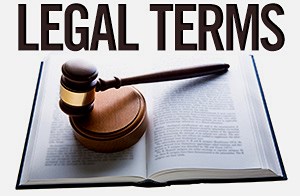Issue per stirpes and per capita should not be used when drafting wills.
There seems no end to the ongoing litigation that arises in will interpretation cases due to the coontinued use of the legal terms” issue per stirpes” or “issue per capaita” and other such technical words in wills drafting.
The said words have been around for centuries and have very specific meanings in legalese, but the problem conitnues to be that they are often used.
incorrectly and lead to the very litigation that they were presumably used to avoid
The Ontario Court of Appeal case of Dice v Dice Estate 2012 CarswellOnt 8608 is juut the latest of a plethora of caselaw that has developed due to the
misuse of these terms of art.
Disinherite.com has written previous articles thata are on the website realting to Wills Drafting that explain in more detail where the confusion mostly occurs
The word “issue” used only by itself has been interpreted to mean all of the lineal descendants of the deceased, which can often be a huge number
“issue per stirpes” means that if a child of the deceased predeceases the testator, then in that event, the share “goes down” to the children of the
predeceased child, the grandchildren, instead of the surviving children.
“Issue per capita” means that the predeceased child’s children do not inherit and instead the share of the deceased child instead goes equally to the surviving
children, the siblings.
In the Dice case the deceased left his estate to his wife for her lifetime use and then the residue to the two children “per stirpes”
One child died in 2000 and the wife died in 2010.
Both the children of the deceased child, as well as the surviving child claimed the share of the deceased child
The court awarded the share to the children of the deceased child, holding that the words “per stirpes” were deliberately used as the testator realized that one
child might die before his wife which is what happened.
The court held that despite no conclusive authority existed, it did not need to as the most logical meaning was that the use of the phrase conveyed the intention
to benefit the testator”s children”s children, ie grandchildren
Per stirpes had to have some meaning and the court of appeal upheld the trial judges finding that the grandchildren inherited their deceased parents share
disinherited.com stresses that words such as children and grandchildren should be used in wills drafting, rather than precise legal terminology that invaribly is frequently misused.
– See more at: http://www.disinherited.com/blog/beware-words-stirpes-and-issue-wills-drafting#sthash.HKbrBuu8.dpuf





